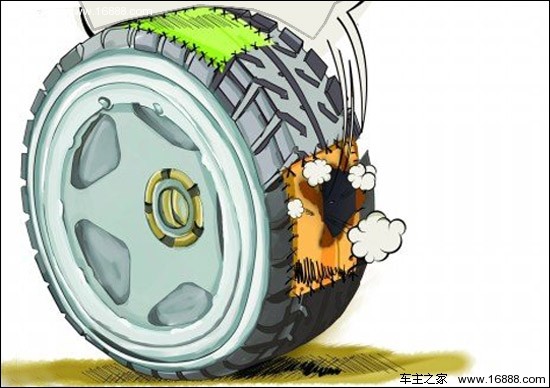【Car owner’s home car knowledge]Entering summer, how to prevent car tires from punctures has become the most concerned thing for many car owners. Because according to statistics, about 1/3 of traffic accidents on highways are caused by tire failure, and the most important one is tire blowout. As a result, there is endless knowledge about car summer puncture-proof tires. Some people say that lowering tire pressure can prevent tire punctures, while others say that filling with nitrogen can prevent tire punctures. So, are these methods on the Internet reliable?
When it comes to summer run-flat tires, the first thought that pops into many people's minds is usually to lower the tire pressure. Because everyone has learned the principle of thermal expansion and contraction. Gas expands when heated. If the air pressure in the tire is too high, it will definitely burst when heated. Therefore, many car owners will naturally lower their tire pressure by 0.1-0.2 BAR after entering summer. However, this seemingly reasonable approach is actually counterproductive.
Because there are many steel wires inside the tire to hold the entire tire. When driving with insufficient tire pressure, due to the irregular deformation of the tire, the steel wire inside the tire is constantly deformed. As a result of the continuous deformation of the steel wire, the temperature of the steel wire rises sharply, and it is easy to break. Coupled with the increase in tire temperature during driving, the possibility of tire blowout will increase. Increasing the tire pressure by 0.1 or 0.2 BAR compared to the normal value can effectively reduce the deformation and breakage of the steel wires inside the tire caused by the deformation of the tire, thereby reducing the possibility of a tire blowout. Therefore, lowering tire pressure is unreliable!
Nitrogen filling is also considered a "good" way to protect against flat tires in the summer. Because nitrogen is an inert gas, its molecular free path is larger than that of oxygen, and its permeability in rubber is low. Therefore, the tire pressure drop rate is greatly reduced, and the time to maintain normal tire pressure increases. At the same time, the volume expansion of nitrogen when the temperature changes is much lower than that of air containing moisture, thus reducing the chance of a tire blowout.
However, we once conducted an experiment in which the left and right tires of the same car were filled with nitrogen and air respectively. Then, the tire pressure and temperature were recorded every 10 kilometers. The final result was that the characteristics of "nitrogen's low thermal expansion coefficient, low thermal conductivity, and slow temperature rise" are not obvious in practical applications. Therefore, it is not advisable to fill tires with nitrogen to prevent punctures in summer.









 Email:
Email: